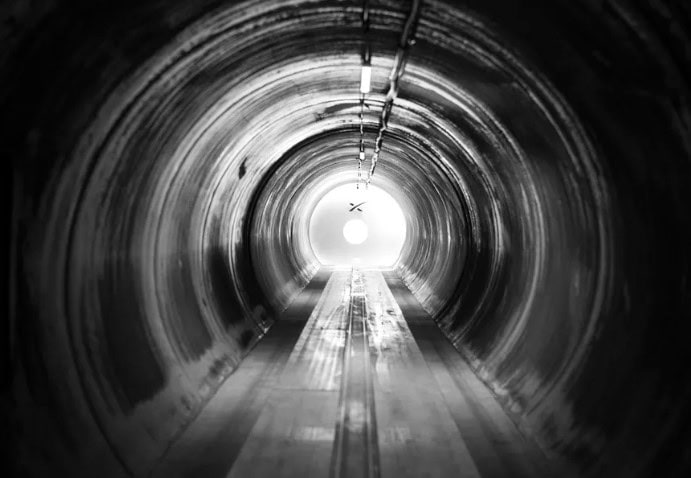
It was a hyperloop hat trick by a team of German engineering students at the third annual SpaceX pod competition Sunday. WARR Hyperloop, from the Technical University of Munich, took home the top prize — and set a new record — with their self-propelled pod reaching a top speed of 284 mph (457 kph).
WARR Hyperloop was one of three finalists to participate in the competition. The teams were tasked with developing a pod to travel down the 1.2-kilometer (0.75-mile) tube, as part of SpaceX CEO Elon Musk’s vision for a futuristic, high-speed transportation system. The pod that reached the maximum speed would be crowned the winner. The only other requirement was that all pods be self-propelled. In addition to WARR, the other qualifying teams were Delft University from the Netherlands and EPF Loop from Switzerland.
This was the third time that SpaceX held its hyperloop competition at its headquarters in Hawthorne, Calif. — and it was the third time that WARR Hyperloop took home the top honor. Under a blazing sun, hundreds of engineering students from all over the world gathered to present their vision of ultra-fast tube-based travel, as first dreamed up by Elon Musk is a 2013 white paper. The event had the vibe of a Musk-inspired summer music festival, with food trucks lining Jack Northrop Avenue and sunburned university students playing ping pong, cornhole, and SpaceX-branded Jenga. There was an ‘80s cover band called The Spazmatics. And of course, Musk himself couldn’t resist the urge to make an unscheduled appearance.
WARR Hyperloop, from Munich Technical University, also took home the top prizes in the last two competitions in January and August of 2017. And once again, the team’s prototype pod comfortably beat submissions from the other three teams. The 154-pound (70 kg) carbon-fiber pod is powered by a 50kW electric motor and features pneumatic friction brakes that allow the pod to come to a standstill within five seconds, according to the team. The major difference this time around was the absence of a SpaceX “pusher” vehicle to help propel the pods down the tube. Instead, all pods needed to be self-propelled.
WARR also took home one of three innovation prizes, in recognition of the team’s ambitious move to construct two pods: one for the speed competition, and another to demonstrate its levitation capabilities. Other innovation prizes were handed out to the University of Washington and Eirloop from Ireland.
Not every team was able to achieve their desired speeds. Delft University’s pod hit a top speed of 88 mph before stalling out in the tube. The team encountered “serious problems” during testing in the week prior to the competition, including a fried circuit board, according to team members. Switzerland’s EPFLoop also encountered a number of complications, resulting in its pod only achieving a top speed of 55 mph.
SpaceX is not affiliated with any of the startups currently working to build a real hyperloop, but the super-fast transportation system is still close to Musk’s heart. In 2013, Musk published his “alpha paper” which theorized that aerodynamic aluminum capsules filled with passengers or cargo could be propelled through nearly airless tubes at a velocity close to the speed of sound. He called it a “fifth mode of transportation” and argued it could help change the way we live, work, and travel.
The most famous scenario he proposed was a trip from LA to San Francisco in just 30 minutes. Predictably, the idea captured the imaginations of engineers and investors across the world. Three companies, all based in LA, are actively engaged in building their own hyperloops. And as part of his Boring Company venture, Musk is now talking about digging tunnels under LA and Chicago as a way to bypass traffic. Musk has said he wants to build a hyperloop between New York City and Washington, DC.
Much like in past years, Musk made an unscheduled appearance at the contest he helped inspire. With his girlfriend Grimes (aka Claire Elise Boucher) and five of his young sons in tow, the SpaceX CEO toured some of the teams’ booths, inspecting the various pods and cracking jokes with the students.
Standing behind a podium constructed from interlocking LEGO-esque bricks made from excavated dirt by the Boring Company, Musk praised the teams for their commitment to the futuristic project.
“This is really the first opportunity to create a new mode of transport,” he said. “That’s really what this competition is about: things that could radically transform cities and the way people get around.”

